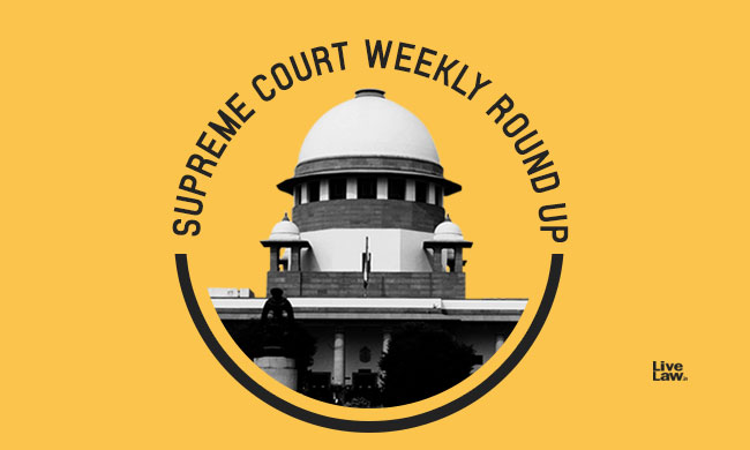- Home
- /
- Top Stories
- /
- Supreme Court Weekly Round-Up
Supreme Court Weekly Round-Up
Arabhi Anandan
9 March 2020 10:28 AM IST
Section 173(8) CrPC: Courts Not Obliged To Hear Accused While Considering Plea For Further Investigation [Satishkumar Nyalchand Shah v. State of Gujarat] The Supreme Court reiterated that a court is not obliged to hear the accused before any direction for further investigation is made under Section 173(8) of the Code of Criminal Procedure. In this case, the application filed...
Next Story



